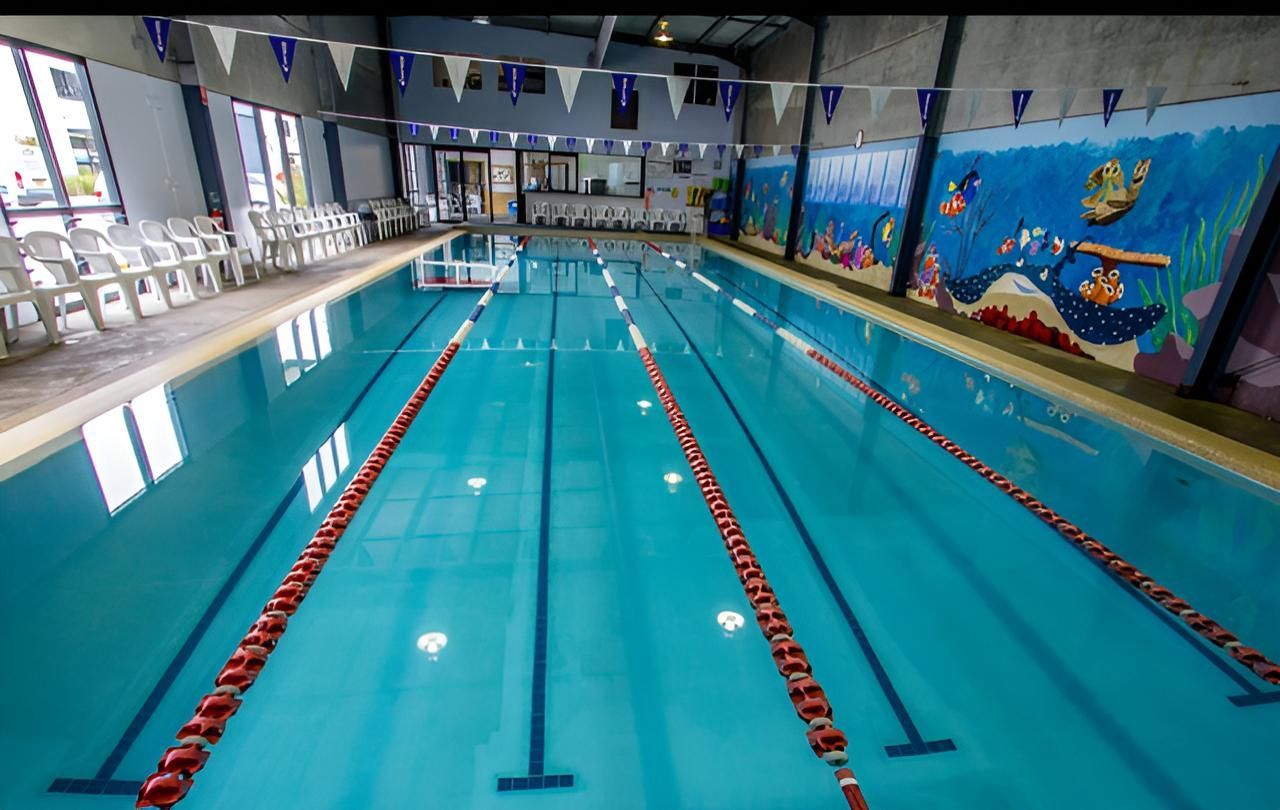Frequently Asked Questions
-
What age should a child start swimming lessons?
Most swim centres recommend starting lessons from around 6 months of age. At this stage, babies are developmentally ready for water-based activities and can benefit from early water familiarisation.
Infant swimming programs focus on comfort in the water, bonding with parents, and developing basic motor skills like kicking and floating. The earlier a child begins lessons, the more confident and water-safe they typically become. Regular attendance and gradual skill progression help build a strong foundation for independent swimming.
-
What should I bring to my child’s swimming lesson?
Parents should bring swimwear for their child, a towel, a change of clothes, and a swim cap if required. Children under three must wear a swim nappy for hygiene purposes. It’s also helpful to pack a water bottle and snacks for after the lesson.
If your child uses goggles or floatation aids, bring those along too—though most centres supply any required teaching equipment. Dressing your child in easy-to-remove clothing can also make change-room time faster and more convenient.
-
How long does it take for a child to learn to swim?
The time it takes varies widely depending on a child’s age, confidence, consistency, and individual learning pace. Some children become comfortable in the water within a few weeks, while mastering independent strokes and water safety skills can take months or even years.
Weekly lessons combined with regular practice help reinforce skills. Encouraging positive associations with water and avoiding long breaks between sessions are also important. Swimming is a long-term skill that builds gradually—patience and consistency are key.
-
Are aqua aerobics classes suitable for beginners?
Yes. Aqua aerobics is well suited to beginners and people of all fitness levels. Classes typically take place in chest-deep, heated water and involve a mix of cardio, strength and mobility exercises.
The buoyancy of water reduces impact on joints while still providing effective resistance, making it ideal for those recovering from injury, older adults, or anyone new to exercise. Instructors often offer modifications so participants can work at their own pace while gradually improving fitness and flexibility.
-
How do I know which swim level my child should be in?
Swim schools usually assess children based on age, current swimming ability, and water confidence. Some offer trial sessions or short assessments to determine the right level before enrolment.
Program levels are often divided by skill milestones—such as floating independently, swimming a certain distance, or using correct breathing techniques. If unsure, start with a lower level. It’s better to master foundational skills before progressing to more advanced techniques. Check with the swim school about how they structure levels and transitions.
Your Questions Answered
Have a question about swimming lessons, programs or what to expect at the pool? This FAQ section covers some of the most common queries about swimming classes, aqua fitness and general swim centre information.
If you can’t find what you’re looking for, don’t hesitate to call 02 4353 4066 for help.




